
Aline Saarinen
Aline Saarinen first gained notoriety as an art critic and served as an associate art editor at the New York Times. Her career in art criticism segued into a career in television as a popular on-air personality. Saarinen’s presence on television led to her appointment as chief of the National Broadcasting Company’s Paris news bureau, the first woman to hold a position of this type.

Sabbateanism
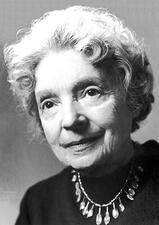
Nelly Leonie Sachs
In 1966 Nelly Sachs became the first German woman to win the Nobel Prize in Literature. After Sachs fled Berlin in 1940, her thirty-year exile in Sweden proved fertile ground for her poetry. She was motivated as a writer by her deep desire to bear witness to the victims of the Holocaust.
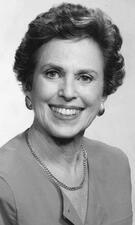
Sallyann Amdur Sack

Sadie Shapiro
Sadie Shapiro was an American-Jewish medical social worker who made pioneering contributions to the field of rehabilitation. She developed a novel service for wounded soldiers during World War II that integrated medical care, rehabilitation, and occupational retraining. Regarded as the nation’s top expert in the field of medical social work, Shapiro was hired by the AJJDC to oversee medical social services among Holocaust survivors in the DP camps of Europe.
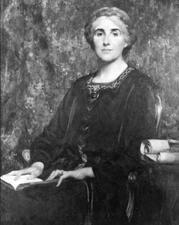
Nina Ruth Davis Salaman
Nina Salaman was a well-regarded Hebraist, known especially for her translations of medieval Hebrew poetry, at a time when Jewish scholarship in Europe was a male preserve. In addition to her translations, she published historical and critical essays, book reviews, and an anthology of Jewish readings for children, as well as poetry of her own.
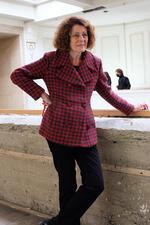
Rachel Salamander
Rachel Salamander is a writer, scholar, editor, and publisher. Born in 1949 in a DP camp in Germany, she has written and published multiple works about German Jewry and DP camps after World War II. In 1982, Salamander established the Literaturhandlung in Munich, a prominent bookshop and meeting place specializing in Jewish literature.

Eva Salber
Salome

Alice Salomon
Alice Salomon was an educator, feminist, economist, and international activist who was one of the pioneers of the emerging field of professional social work in Germany in the early 20th century. In 1925 she was among the founders of the German Academy for Women’s Social and Educational Work, and she later served as the first president of the International Committee of Schools of Social Work.

Andrée Salomon
Andrée Salomon, a heroine of the French Jewish Resistance, was responsible for saving approximately 1,000 Jewish children during the German Occupation of 1940-1944. She was also an active member of Zionist organizations facilitating clandestine immigration to Mandate Palestine and of the Women’s International Zionist Organization.

Charlotte Salomon
Vera Frances Salomons
An elusive figure, Vera Salomon, who belonged to the interconnected network of Anglo-Jewish families known as “the Cousinhood,” is best remembered for founding and funding the L.A. Mayer Museum of Islamic Art in Jerusalem. This was the culmination of a longstanding philanthropic commitment to Jewish life in what would become the State of Israel.
Salonika: Female Education at the end of the Nineteenth Century
Salonika was a vibrant center of Sephardic Jewish life in the Ottoman Empire, at some points even boasting a majority Jewish population. The Alliance Israélite Universelle, a French Jewish educational program, was established to westernize, or in their words “regenerate,” Sephardi and Mizrahi Jewish communities. The Alliance established dedicated girls’ schools to give young Jewish women a secular education.
Sharon Salzberg

Pnina Salzman
Renowned classical pianist Pnina Salzman was the first Israeli pianist to conquer concert stages in Europe and Asia in the early 1940s, before the establishment of the State of Israel. She also enriched the local music scene with her premieres of Israeli composers, who wrote for her knowing that their work would receive superb interpretation. She won the Israel Prize for her musical achievements.

Samaritan Sect

Jessie Ethel Sampter
Jessie Sampter was an important Zionist activist, writer, and educator. As an influential member of Hadassah, the woman’s Zionist organization, she advocated for an inclusive vision of Zionism. Putting her ideas into practice, she moved to Palestine in 1919. Although Sampter’s disability and non-normative family structure did not align with Zionist ideals of strong, healthy bodies, she championed Zionism, though not always uncritically.
Else Rahel Samulon-Guttmann
Else Samulon-Guttmann showed her exceptional intelligence early in life, studying law at Berlin university and earning a PhD from Heidelberg University. Appointed a judge in 1929, she lost her position with the Nazi rise to power in 1933. Samulon-Guttmann stayed in Germany for her mother and was murdered at Auschwitz in 1944.

Sheryl Sandberg

Freyda Sanders

Bernice Sandler
Bernice (Bunny) Sandler was an activist and education expert who theorized Title IX of the Education Amendments Act of 1972, the federal law that mandates sexual equality in educational institutions that receive federal funding. As such, Sandler was an architect of the 1970s feminist “women’s liberation” movement. She continued to fight sex discrimination in education in the following decades, especially on issues of racial inequity and sexual assault.
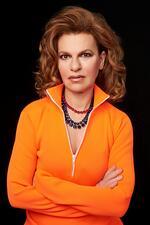
Sandra Bernhard
Sandra Bernhard is an American actor, stand-up comedian, singer, memoirist, and talk show host. She has been a high-profile LGBTQ+ presence over a career that has spanned five decades. Bernhard’s work amalgamates the three perspectives that she has said define her: “the feminist, the social commentator, the Jewess.”
Cecile Ruth Sands



